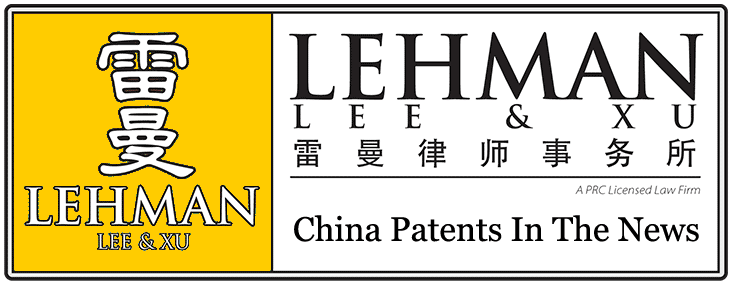China has altered its licensing laws to allow domestic pharmaceutical companies to make cheap generic copies of patented drugs under certain circumstances. The move is part of the country’s efforts to ensure it has the weapons to tackle health crises like Aids, but there are concerns about the effect these policies could have on innovative drug development.
The new measures allow the government to issue compulsory licences to eligible companies to produce generic drugs. A clause has been added to existing patent laws stating: ‘SIPO [China’s State Intellectual Property Office] has the right to authorise compulsory licences in emergencies, extraordinary conditions or in the public interest.’
Zhang Weijun, associate professor of the intellectual property institute at Tongji University, China, says that the changes to the law come under the auspices of TRIPS (Agreement on Trade-Related Aspects of Intellectual Property Rights), so it would not be illegal for Chinese companies to produce patented drugs – provided they get a permit from the government.
Drug TRIPS
TRIPS is an international agreement administered by World Trade Organization (WTO) which sets down minimum standards for many forms of intellectual property (IP) regulation for its members. Recognising public health crises caused by patented drug shortage in some developing and least developed countries, an interpretive statement of TRIPS was issued in November 2001, which indicated that TRIPS should not prevent states from dealing with public health crises.
‘Innovator pharmaceutical companies are obviously not going to be happy with this move, but there's not much they can do for existing drugs besides try to get the pricing and distribution right and compete against the generics in the marketplace,’ says Colleen Chien, associate professor of law at Santa Clara University, US.
Indeed, pharma giant of Bayer has recently been on the receiving of a compulsory licence. In March, India's patent authority granted a licence to a local generics manufacturer to produce sorafenib, a kidney and liver cancer drug.
Following India’s move, China’s legislative changes have put big pharma on notice. ‘HIV drugs may be the first target, as HIV has become a growing threat in China, especially in rural areas where drugs are in extremely short supply,’ says Lu Shoufu, chief executive of Shanghai-based AQBiopharma. ‘Patented drugs are a heavy load for the Chinese government [to bear].’
Urgent need
According to the Chinese human rights charity the Yirenping Center, compulsory licensing of hepatitis B drugs is also urgently needed in China. Shanghai-based generic drug maker Aurisco is already reported to have applied for a compulsory licence through the appropriate government agency for Gilead Sciences antiviral tenofovir, which can be used to treat hepatitis B and HIV.
Just like in India, generic drug production capability is developing rapidly in China, which is what makes compulsory licensing possible in the country in the first place. ‘It is good news for some local pharmaceutical firms,’ Lu says, ‘and also protects the Chinese drug industry.’
However, all compulsory licence applications have to be put forward by the appropriate government agency and this is seen as something that will slow the process. Big drug firms are not helpless, either. They have already foreseen the amendments to the law in China and ‘big pharmas like Pfizer and Merck are cooperating with local pharmaceutical firms to set up research centres to make patented drugs in China, which reduces costs and lowers the price of medicines,’ Lu tells Chemistry World. ‘Some big companies would share the patent under the new rules.’
With new drug development becoming more and more difficult, international pharmaceutical companies that pump funds into innovative research have reason to worry. However, the risk of setting back innovative drug research seems to have led the Chinese government to view compulsory licences as being a weapon of last resort.
Nevertheless, Chien says that the impact of compulsory licences on innovation is still uncertain. ‘For drugs that are not specific to emerging markets, the worldwide market is typically large enough for this not to matter, for drugs that are specific to emerging markets, this will impact innovation.’ She points out that, ‘we need to be careful here. Pharmaceuticals are already facing a lot of problems with new drug innovation. To some degree compulsory licensing favours dissemination of existing innovation but at the expense of future innovation.’
Web link: http://www.rsc.org/chemistryworld/2012/07/china-targets-patented-drugs-law-change |

